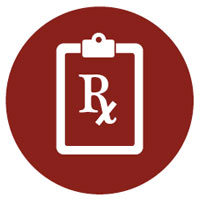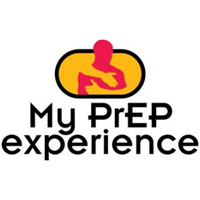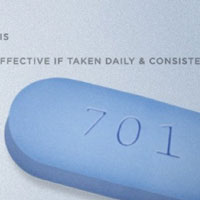John Mutsambi is a 2015 AVAC Fellow, hosted by TB/HIV Care in Cape Town. He is a community engagement specialist whose experience spans two decades working on HIV prevention and implementation. John has developed and managed community engagement programmes at clinical trial sites in six countries in eastern and southern Africa, including IPM’s Ring Study, HPTN 052 and BufferGel and PRO 2000 microbicide studies. As a 2015 Fellow, he’s working to speed up regulatory approval of Truvada as PrEP, codify the Southern African guidelines for PrEP into policy and create demand for PrEP.
“Who knows my HIV prevention needs, fears and experiences better than myself?” asked a young woman at a recent community event in Cape Town. She considers herself at high risk of HIV infection. And I agree with her and others at risk that they know their sexual situation better than anyone. It is only when we mentally put ourselves in their shoes that we gain a sense of what they are going through. Our ears need to be awakened to hear what people are saying. This awakening should move our hearts to action. But what prompts me to make this statement?
As an HIV prevention advocate who works closely with a host of people from different walks of life, it touches the deepest part of my life to hear those at high risk of HIV calling for access to scientifically proven HIV prevention options. One of these options is pre-exposure prophylaxis (PrEP), an evidence-based biomedical intervention to prevent HIV infection. PrEP is an exciting new HIV prevention tool, which if taken correctly and consistently, can prevent HIV infection by more than 90 percent.
For most of the voices demanding PrEP, the existing interventions aren’t sufficient. Even though they may not be heard at the moment in South Africa, these voices are very clear and they carry an emotional urgency – one that calls for attention. Their demand is expressed in different forums such as community meetings, informal dialogues and in conferences, to name a few.
On 8 August, for instance, I jointly organized a large community event with other civil society partners to celebrate Women’s Month in Cape Town. Here, women expressed a great demand for PrEP. “How and where can we get PrEP?” asked some of the young women. The demand for PrEP, as I have seen, increases proportionally with the level of awareness created.
Also at the 7th South African AIDS Conference held in Durban in June, young women demanded that PrEP be made available without any further delays because it is the only HIV prevention tool that they could initiate without a partner’s consent. They emphasized the need to be involved in decision-making when planning for the rollout of PrEP and asserted “Nothing for Us without Us”.
To effectively access PrEP, the young women pointed out that health workers’ negative and judgemental attitudes towards them should change. “We recommend that youth-friendly clinics be established and that health staff be sensitized about the unique needs and problems that young people face,” said one of the young women at the conference.
Sex workers have also expressed a high demand for PrEP. Some have even stated their support for the possibility of a long-acting injectable PrEP option and the ongoing clinical trials. It is this expressed demand for PrEP that collectively spurs prevention advocates into action.
By citing only a few key groups above, the reader should not assume that these are the only people demanding PrEP. It is in fact different people who perceive themselves to be at high risk of HIV infection whom we talk to during outreach who are eagerly waiting with anticipation for its availability.
In spite of all this, the people’s wishes have either been drowned out by voices of power or the politics of inaction and even complete silence. Nothing is more disheartening today than knowing that PrEP is here, and yet so far unavailable due to regulatory and other hurdles. We must heed the advice of Woodrow Wilson, the 28th President of the United States of America, who advised that, “The ear of the leader must ring with the voices of the people.”
Getting PrEP into people’s hands so that they can prevent themselves from HIV infection should be placed high on the HIV prevention agenda of African countries if we are to drive down the HIV incidence. Of course, PrEP won’t work in isolation of other options. It should be rolled out as part of combination prevention, along with male and female condoms, prevention of vertical transmission, syringe exchange and harm reduction, medical male circumcision and treatment, among others. Scientists, sponsors of PrEP trials and other stakeholders have already put substantial resources into this research to give us the evidence of its efficacy. What baffles me now is the delay in turning the research results into policies, and then policies into services – more so when the demand for the prevention tool is so apparent.
Oh! this reminds me of the other day when I heard people arguing that there aren’t enough resources to roll out PrEP. They said rolling out PrEP would divert scarce resources from ARVs, which are already in short supply in South Africa. Believe me, rolling out PrEP is not going to be easy in any country. It requires political will, advocacy, generation of domestic sources of funding, continued external resource mobilization, continued donor contributions and commitment, and more importantly, investment based on decisions that are not driven by sentiments but rather evidence.
Advocates and NGOs want to support the Department of Health (DoH) in planning and executing such a rollout. Some NGOs that are already providing comprehensive HIV prevention services to different key population groups in South Africa have suggested that the DoH could take advantage of these existing structures and services to understand how best to integrate PrEP into existing prevention packages. This technical assistance would support the DoH in putting in place structures in district and provincial hospitals to scale up PrEP rollout.
I do not see PrEP competing with, undermining or replacing the availability and promotion of other existing HIV prevention methods, including treatment. In fact, the introduction of PrEP would complement existing strategies and give people a wider choice of options. PrEP would also avert new infections and subsequently result in less need for treatment, putting countries on a more feasible path to UNAIDS targets of ending AIDS. Also, PrEP should not lead to drug shortages. As established by GroundUp, the South African community newspaper, drug stockouts in the country have predominantly been due to poor management not a lack of resources.
How can HIV prevention advocates help PrEP become a reality in South Africa? We need to continue supporting the people’s demand for PrEP. We must urge the Medicines Control Council (MCC) of South Africa to quickly approve the application for Truvada as PrEP. (Truvada is already approved as a treatment drug in South Africa.) And we must continue advocating for extended clinical guidelines for PrEP. This cannot be done without mobilizing resources internally and externally and by civil society working closely with national and provincial policy makers to map the landscape and PrEP agenda together. As we do this, we need to ensure communities are provided with adequate and accurate information about PrEP. What an opportunity we have to make prevention a reality for some of the most at-risk individuals and groups! We must seize it.
 This handy short video from your pals at
This handy short video from your pals at  To get a little more in-depth, turn to
To get a little more in-depth, turn to 

